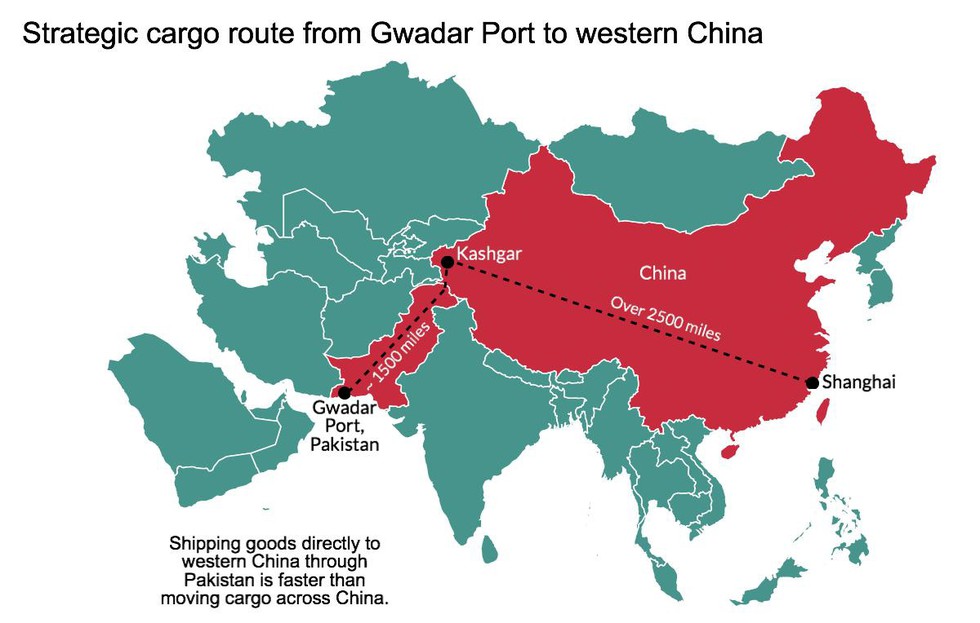Virendra Pandit
New Delhi: Neary two weeks before the term of the Shehbaz Sharif government ends on August 14, Pakistan on Thursday signed an MoU with Saudi Arabia for the establishment of a USD 10 billion greenfield oil refinery at Gwadar Port in the restive, mineral-rich southwestern province of Baluchistan where the USD 62 billion China-Pakistan Economic Corridor (CPEC) culminates.
In March, China emerged as a ‘peacemaker’ in the Middle East by brokering a deal between Saudi Arabia and Iran. Thereafter, the refinery deal with Pakistan was rushed through to ensure energy security for China, which is the world’s largest energy guzzler and importer.
This refinery, Pakistan’s largest, would refine Saudi crude and is expected to ship its products to China via Xinjiang.
Four Pakistani state-owned petroleum companies signed the MoU on Thursday with Saudi Aramco to set up the facility with a production capacity of 300,000 barrels per day (bpd).
The four state-owned enterprises (SOEs) to join the project through equity participation are Oil and Gas Development Company Ltd (OGDCL), Pakistan State Oil (PSO), Pakistan Petroleum Ltd (PPL), and Government Holdings Private Ltd (GHPL), the Dawn newspaper reported.
According to reports, the Sharif government is in the advanced stages of negotiations with Saudi giant Aramco to execute the greenfield refinery project at the strategic Gwadar Port and wants to complete the initial paperwork before its tenure ends in mid-August.
To facilitate the Saudi investment in refining, Islamabad recently tweaked a policy under which a new deep conversion oil refinery of at least 300,000 bpd capacity achieving financial close of the project within five years would be eligible for a customs duty of 7.5 percent for 25 years on petrol and diesel of all grades produced.
The project envisions setting up an integrated refinery petrochemical complex with a crude oil processing capacity of a minimum of 300,000 bpd along with a petrochemical facility.
The integrated complex would comprise various components such as marine infrastructure, petrochemical complex, storage for crude oil and refines utilities, pipeline connectivity, etc.
According to the Petroleum Division, despite being integral to the growth of the economy, no new refinery project was set up in Pakistan for more than a decade. More, only two refineries were added in the last 40 years.
Compared to the 20 million tons of refining capacity at these refineries, the actual capacity utilization is at around 11 million tons, mainly because of the decreasing demand for furnace oil in the wake of a change in the energy mix in the power sector and the fixed production slate of refineries that cannot produce just petrol and high-speed diesel as all products are manufactured simultaneously.
The proposed Saudi refinery will also enjoy a 20-year tax holiday and be entitled to exemption from levy of customs duties, surcharges, withholding tax, general sales tax, any other ad valorem tax, or any other levies and duties on import of any equipment to be installed, or material to be used in the refinery projects.
These fiscal incentives and other facilitation would be recorded and protected under the project agreements between the project company, the key sponsors, investors, and the concerned government and would be protected through a grant to Special Economic Zones Act.

